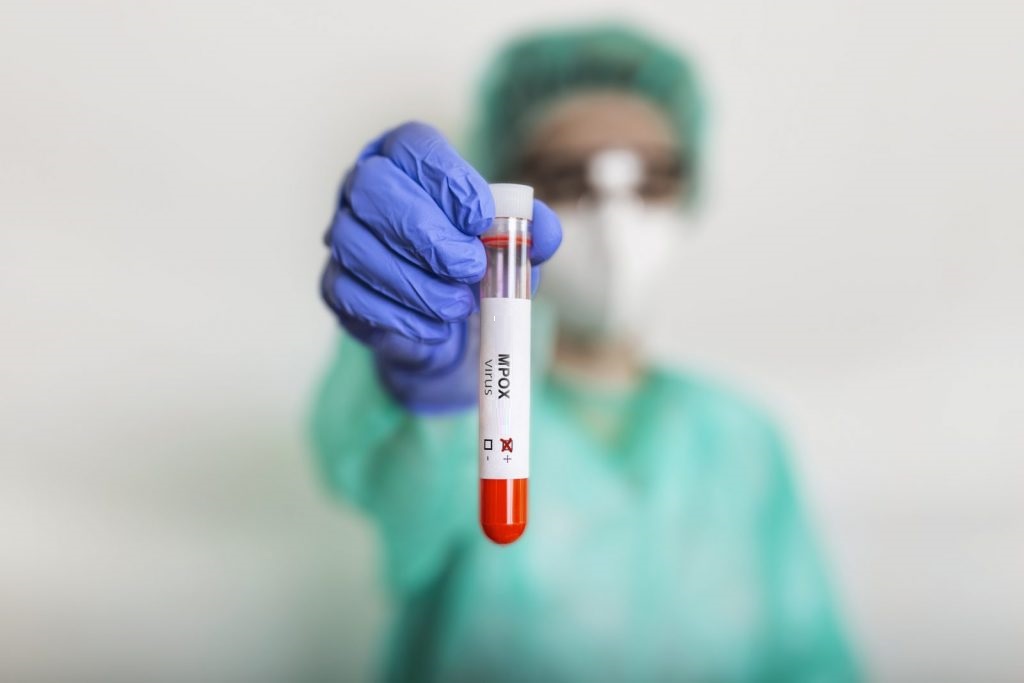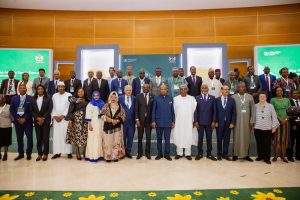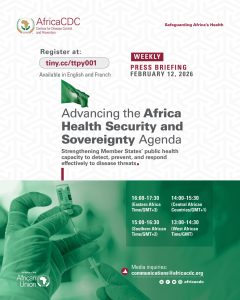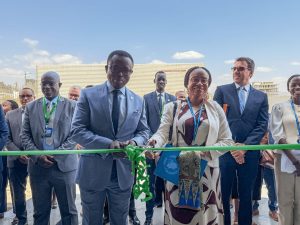Addis Ababa, Ethiopia, 12 Nov 2024 – The Africa Centres for Disease Control and Prevention through its Diagnostic Advisory Committee (DAC) has recommended the first locally manufactured Real-Time PCR test for mpox from Morocco. Africa CDC’s approval underscores the test’s reliability and efficacy, potentially boosting Morocco’s role in global health initiatives.
This major milestone is in line with the African Union’s continental effort to strengthen the self-sufficiency of African public health systems towards enhancing the continent’s efficiency in preparedness and response to disease threats.
It has been 93 days since the declaration of the mpox outbreak as a Public Health Emergency of Continental Security by the Africa CDC and a Public Health Emergency of International Concern by the World Health Organization (WHO). Within this 100-day mission period, a joint Africa CDC/WHO continental plan was launched.
Africa CDC has supported Member States through the continental plan. It procured and delivered PCR and genome sequencing test kits, GeneXpert cartridges. It also trained them on specimen collection and transportation, biosafety and biosecurity, and molecular testing for mpox. Africa CDC’s DAC offered crucial guidance to Member States, recommending specific RT-PCR tests for procurement and use – an advisory support that proved invaluable for national testing strategies.
Africa CDC and AUDA NEPAD jointly established the DAC as a quality mechanism to guide the selection, evaluation, validation, verification, and adoption of laboratory diagnostic technologies. It also facilitates data sharing. During this mpox emergency, Africa CDC has worked through the DAC to publish two editions of a recommended list of RT-PCR tests for mpox. Tests on the list have undergone a stringent, systematic process involving an independent review of the available evidence. The tests must fulfill key criteria set by the DAC based on the WHO Target Product Profile for mpox diagnostics.
The third edition of recommended list was published on 12 November 2024. The edition includes one locally manufactured PCR detection kit (UM6P-MAScIR MPOX qPCR 1.0), manufactured by Moldiag, Morocco. The DAC reviewed the evidence about this test based on set criteria including independent evaluation data from the National Institute for Biomedical Research (INRB) in the Democratic Republic of Congo (DRC) and concluded that it fulfilled all the major criteria. This is a major achievement in the mpox response. The Chief Executive Officer of Moldiag, Ms Nawal Chraibi, said that: “At Moldiag, we are dedicated to supporting Africa’s health resilience through the development of locally manufactured diagnostic tools. We believe that strengthening local production is key to empowering the continent in its epidemic preparedness and response, allowing us to respond rapidly and effectively to public health challenges. We are proud to align with Africa CDC’s vision of a self-sufficient and health-secure Africa.”
Local manufacturing of diagnostics constitutes one of the five strategic pillars of the framework for action, “A New Public Health Order for Africa” launched by the African Union through Africa CDC. Dr. Jean Kaseya, Director General of Africa CDC said, Africa CDC is leading an ambitious but very critical continental agenda on local manufacturing of medical counter measures, a critical element for the health security of the continent. “The PCR test kit for mpox, locally manufactured in Morocco, which passed through stringent criteria, recommended by our DAC to be shortlisted is testament that quality medical counter measures including diagnostics can be availed locally during outbreaks. I would like to congratulate Morocco for this outstanding achievement and encourage African Union Member States to consider the use of this testing solution as they continue responding to the mpox outbreak.”
This crucial step will inspire local makers of diagnostics and other epidemic related products. Africa CDC is committed to work with these manufacturers and key stakeholders to make necessary medical products are available for the continent’s health security.
For media enquiries please contact:
About Africa CDC: The Africa Centres for Disease Control and Prevention (Africa CDC) is a public health agency of the African Union. It is autonomous and supports member states in strengthening health systems. It also helps improve disease surveillance, emergency response, and disease control. Learn more at: https://africacdc.org and connect with us on LinkedIn, Twitter, Facebook and YouTube
Media Contacts:
Margaret Edwin | Director of Communication and Public Information | Africa CDC EdwinM@africacdc.org
About the DAC: The DAC is an independent committee of 15 diagnostic experts from institution of excellence across Africa including partners the Africa Society for Laboratory Medicine (ASLM), Global Fund, FIND, Clinton Health Access Initiative (CHAI) and the United States Centers for Disease Control and Prevention (US CDC). The DAC was jointly established by Africa CDC and AUDA NEPAD as a mechanism to harmonize and strengthen regulatory processes in Africa. The DAC secretariat is within the Centre for Laboratory Diagnostics and Systems, Africa CDC, Addis Ababa, Ethiopia.
About Moldiag: Moldiag is a Moroccan start-up founded at the Moroccan Foundation for Advanced Science, Innovation, and Research (MAScIR) by Dr. Abdeladim Moumen. The company has been instrumental in developing and commercializing molecular diagnostic tests tailored to the needs of both Morocco and African continent. Moldiag’s portfolio includes tests for critical diseases such as Hepatitis C, Tuberculosis, COVID-19, and MPOX. Moldiag had contributed to over 5 million tests delivered across Morocco and other African nations during the covid pandemic. Recognized as a flagship success for MAScIR, Moldiag leverages cutting-edge biotechnology to provide accessible, reliable, and rapid diagnostic solutions that support public health efforts in diverse settings. Our commitment to quality and local innovation, combined with strategic international partnerships, underscores our mission to enhance healthcare through scalable diagnostic tools.







